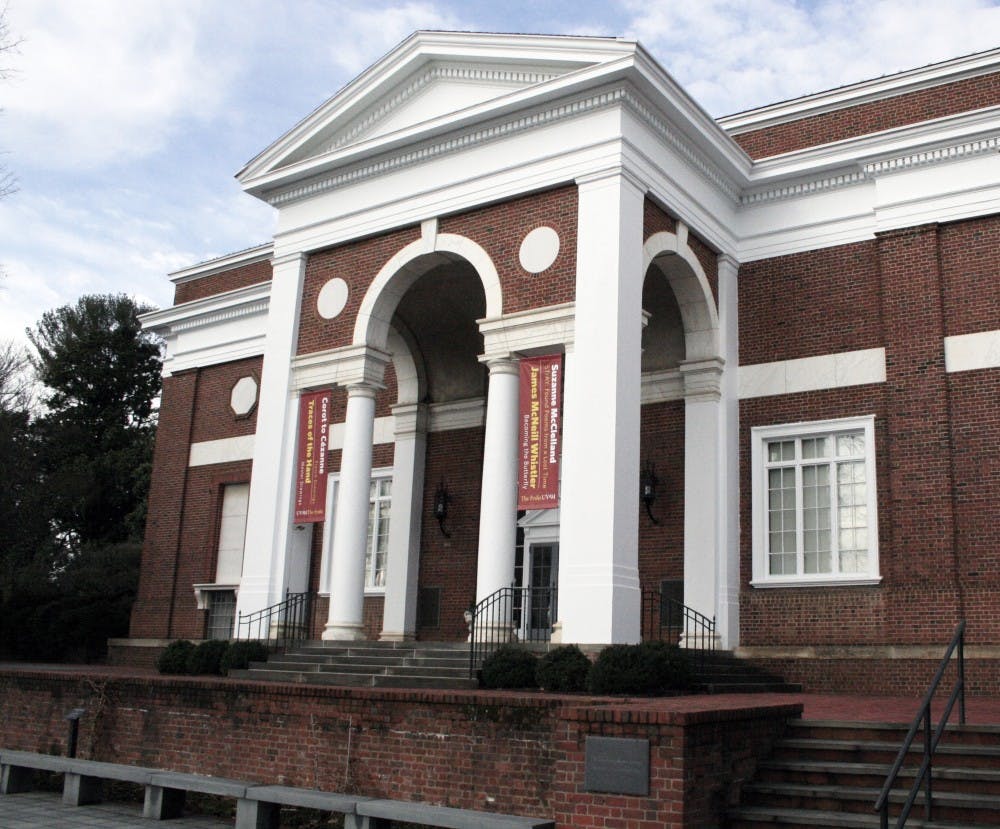By now, students who regularly pass by the Fralin Museum on Rugby Road have probably noticed a big change in the terrace in front of the University’s art museum. “Oriforme,” a monumental sculpture by the late Alsatian artist Jean Arp, on long-term loan to the University from the National Gallery in Washington, has taken up residence on the Joseph and Robert Cornell Memorial Foundation Plaza, where it will remain for the next two years. The work has replaced Henry Moore’s “Seated Woman,” which occupied the spot since 2011.
“Several months ago, [Fralin Director] Bruce Boucher and I approached the National Gallery of Art in Washington, D.C. about the possibility of a loan from its sculpture collection,” said Matthew Affron, an associate professor of art history and modern art curator at the Fralin. “These discussions continued over a period of several weeks and had a very happy outcome: a long-term loan.”
Boucher and Affron did not immediately decide on displaying the Arp sculpture, however.
“We reviewed a number of pieces and chose the Arp because it represented a different kind of statement from the Moore,” Boucher said.
That statement, according to Affron, lies in the work’s combination of the abstract and organic with the modern material of stainless steel. Arp, an integral member of the European Dada movement and world renowned avant-garde pioneer, designed the sculpture in 1962. In 1972, it was cast into its present large-scale form.
“Oriform” is an example of Arp’s work in biomorphic abstraction — the term given to the trend of taking living, breathing things and using them as a creative force in modern art. In “Oriforme,” Arp plays with the idea of a shape that is fundamental to nature — the circle — and allows his creative faculties to morph it into a unique form.
The piece’s title stems from the idea of the orifice as a natural component of living things. The combination of the organic and life-inspired subject matter with stainless steel creates a compelling relationship between the natural and the industrial — one that should not be overlooked during its time at the University, Boucher said.
“Oriforme will be of interest to students of sculpture, as well as students of modern art in general,” Boucher said. “It will also command the attention of students of French literature because of Arp’s poetry celebrating the ambiguous nature of this sculptural form.”
Indeed, the sculpture is something everyone in the University community can value. It isn’t often that a work as esteemed as Arp’s is installed in such an easily accessible location.
“Bringing Jean Arp’s Oriforme to Grounds helps the Fralin fulfill its commitment to introduce important works of art to the University and the surrounding communities,” Boucher said. “Neither the museum nor the University has [another] major piece of sculpture of the caliber of Arp’s late work.”







